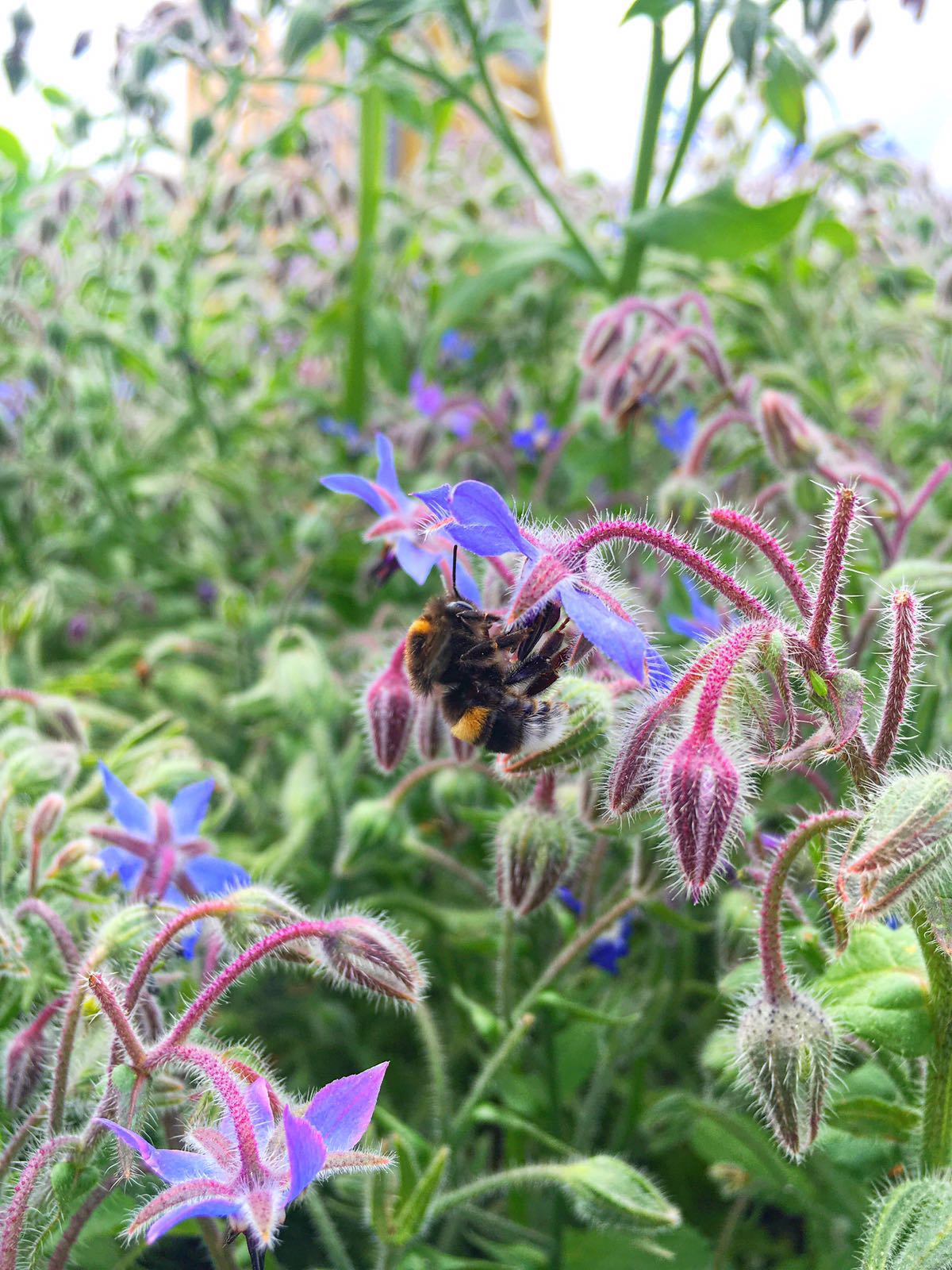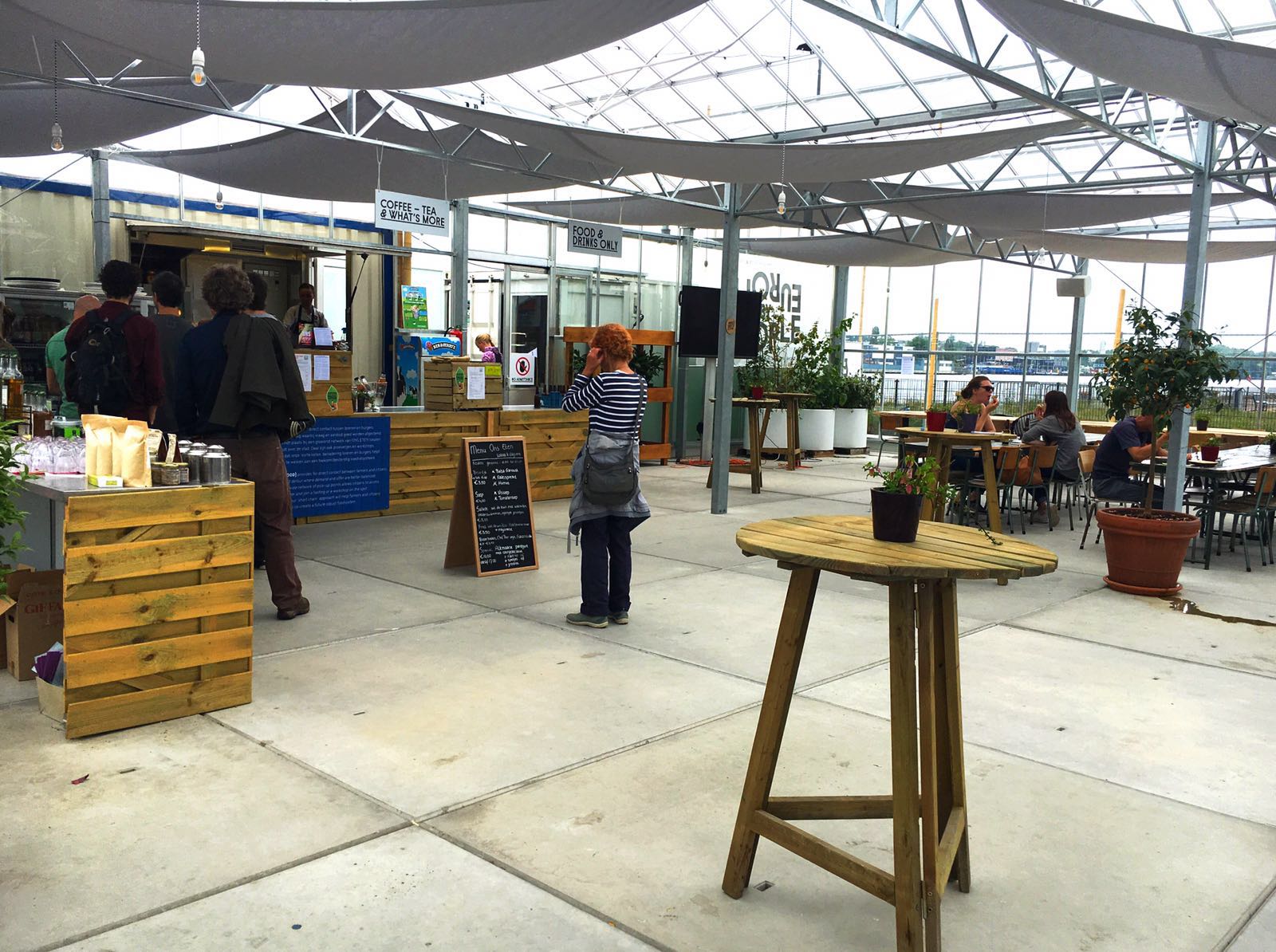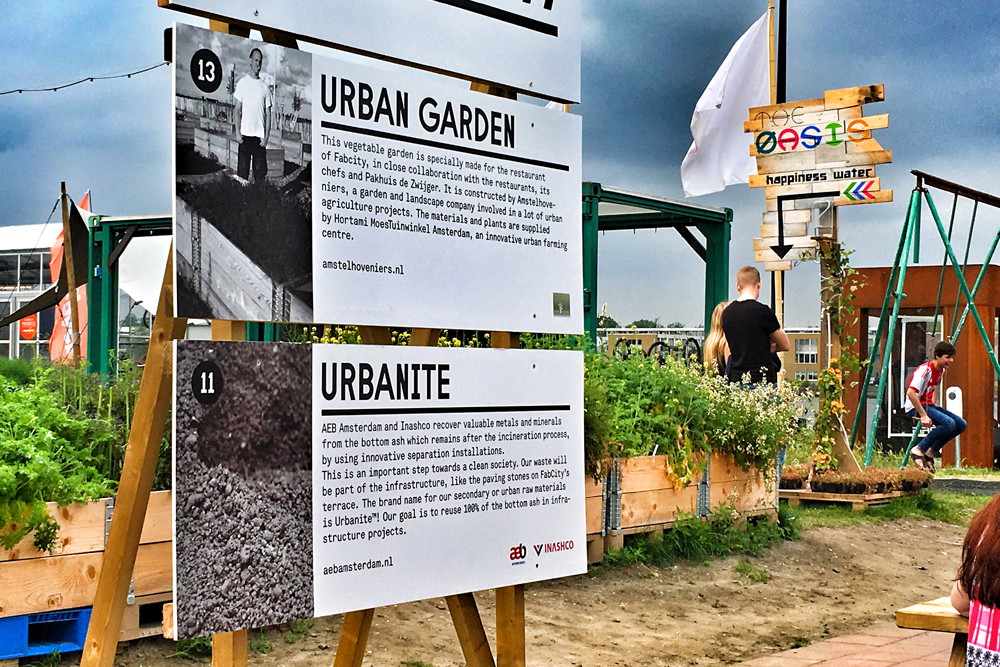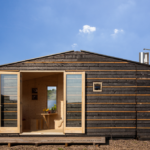GoGaia went to check out the urban farm at FabCity Amsterdam today, where all the delicious herbs and veggies are grown and eaten on site in the greenhouse cafe. The cafe serves yummy food that is locally sourced with a zero-waste policy. Leftovers are recycled in the compost container, and the plants are watered by rainwater. Very cool! We from GoGaia ate a delicious salad from the garden and a pigeon, which according to the waitress was caught on Museum Square. At first, the thought turned us off, but luckily it was really tasty!
Urban Farming can be defined as growing fruits, herbs, and vegetables and raising animals in cities. The processing and distributing of food and the collecting and reusing of food waste and rainwater are also really important parts of it.
Growing your own herbs and vegetables is an ancient concept. Even the Romans already grew their own herb gardens in the peristilium (courtyard surrounded by columns), castles and monasteries always had a private vegetable garden, and nowadays people in Cuba keep rabbits, chickens and even pigs in their showers and on their balconies to have extra food at their disposal or obtain more income by selling the meat or eggs of the animals on the market.
Nowadays, children in the city hardly even realize that milk comes from a cow or that carrots grown in the ground. Urban Farming is a counter movement that wants to bring the city dweller closer to nature again. And we totally agree! But Urban Farming also provides more green space, thus reducing the percentage of CO2 and other greenhouse gases in the air. It can also decrease the mortality rates in urban areas along with improve the health of people living in cities.[1] Plants also have the potential to reduce noise dramatically,[2] which is especially important in cities.
Being in a vegetable garden can have a relaxing effect on people. Research demonstrates that heart rate, blood pressure and muscle tension lower after spending only three minutes in a park or other natural environment. In addition, spending time outdoors can make people more creative, can help improve people’s mood, and can help combat depression and improve the ability to concentrate. Outdoor play makes children and adults more fit, and it raises levels of vitamin D. It’s also a place where people can come together, and you can be involved in more social activities. When people grow their own food, we are able to reduce the amount of transport that we need to deliver food. This will not only reduce the carbon footprint per person, but people also always assured of food being available in the neighborhood. Finally, people can decide for themselves how many pesticides they want to use. Now that the world population is growing, food safety and food availability are becoming really important.
As you can see Urban Farming has many advantages. So if you want to help our environment a bit and need to relax from time to time, start your own garden! You can start small with your own herb or veggie garden (you can even do it on your balcony). Look for helpful tips on:
[1] http://ec.europa.eu/environment/integration/research/newsalert/pdf/heatwaves_urban_areas_reduce_mortality_heatwaves_387na5_en.pdf
[2] http://docplayer.nl/15628991-Roouting-groene-daken-verkoelend-maar-een-hot-item-verminderen-van-de-co2-voetafdruk-vergroten-van-biodiversiteit.html









